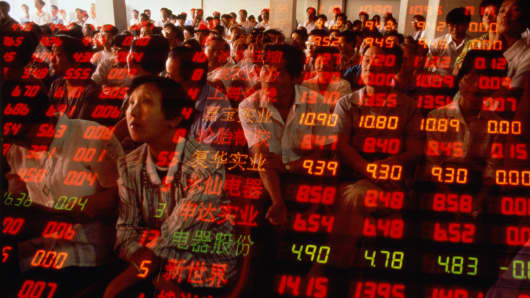Li also sought on Thursday to ease investors' concerns over China's cooling economy, saying Beijing has enough policy tools to fight a "hard battle."
Li said China will cut "real interest rate levels" and lower financing costs for Chinese companies, but did not elaborate on which interest rate he was referring to. Li had made similar comments in a speech earlier this month.
Positive changes in China's economy in March exceeded the government's expectations, he said.
Some analysts say shockingly weak industrial profit data on Wednesday have added urgency for more policy easing.
China's industrial firms posted their worst slump in profits since late 2011 in the first two months of this year amid slowing demand at home and abroad.
Analysts at Capital Economics said they believe the benchmark lending rate will be cut in the weeks ahead, though sources have told Reuters such a move may be a last resort if the economy does not show signs of responding to previous support measures.
Other China watchers say policymakers may be waiting for March and first-quarter data in mid-April for a better picture of whether conditions are starting to stabilize, and how much additional policy easing may be needed.
Li said he could not rule out the possibility that there would be some fluctuations in the world's second-largest economy this year, but added that earlier policy steps were gaining traction.
However, Chinese policymakers, including Li, have stressed that Beijing would not resort to "flood-like" stimulus that would unleash huge amounts of cheap credit, out of concern that could add to a mountain of debt.
The central bank has not cut benchmark rates since the last downturn in 2015, but it has been guiding financing costs lower since last year through various means including liquidity injections.
China's economic growth cooled to 6.6 percent last year, the slowest pace in nearly 30 years, and analysts polled by Reuters expect a further pullback to 6.3 percent in 2019.



